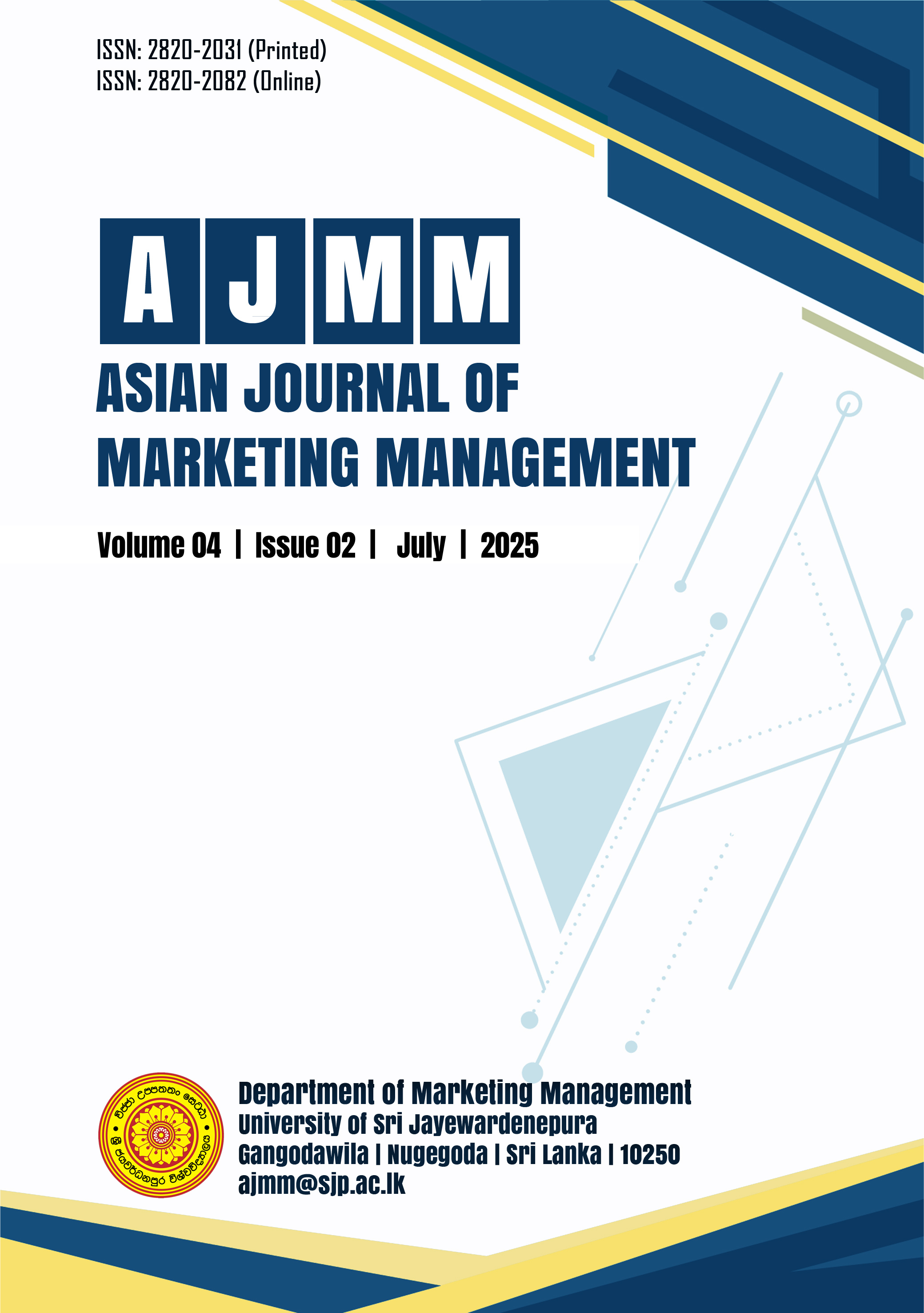Fast Fashion’s Sustainability Dilemma: Navigating Consumer Demand and Environmental Responsibility
DOI:
https://doi.org/10.31357/ajmm.v4i2.8195Keywords:
Consumer Awareness, Eco-Friendly Materials, Fast Fashion, Market Performance, Supply Chain Transparency, SustainabilityAbstract
Purpose: The fast fashion industry has been increasingly criticized due to its substantial environmental impact and workplace ethics issues, which include an overabundance of clothing waste, labor exploitation, and brutal production cycles. This paper identifies the major sustainability issues in the fast fashion industry, focusing on specific areas: consumer awareness of sustainable practices, the impact of sustainability activities on purchasing decisions, the connection between sustainability performance and market performance, and constraints to the effective implementation of sustainability activities.
Design/methodology/approach: Considering the primary and secondary data, a quantitative research design was employed. The questionnaire was administered online randomly to a sample of 397 fashion consumers using the Godden (2004) formula for an infinite population. The data were analyzed using Jamovi (Version 2.4) software to perform both descriptive and inferential statistical tests, such as regression analysis.
Findings: The findings show that the degree of consumer awareness about sustainable fashion, especially among the younger effective market segments, is high, and that there is major support for the use of eco-friendly materials and recycling initiatives. The better a brand's sustainability performance, the greater its market performance, as customer satisfaction, brand loyalty, and sales performance are linked to the brand. Nevertheless, issues of price pressure and supply chain constraints, as well as price sensitivity, remain significant, hampering the implementation of sustainable practices on a broader scale.
Originality: Contrary to previous experiments that only study either consumer behavior or sustainability reporting, this research investigates brand equity, loyalty, and sales of sustainability activities, providing the experiments with not only theoretical value but also real, practical value. Its contextual novelty is evident in its focus on the under-researched market of a new economy, while also considering the current tensions surrounding greenwashing and cost-based impediments that can be addressed through the actionable findings in an environmentally sustainable business strategy.
Implications: These results make it clear that fast fashion companies should align with international sustainability targets, such as the UN SDGs, by being more attentive to transparency, green innovation, and education. Implementation challenges will significantly impact a brand's ability to achieve long-term relevance in the market and fulfill its environmental and societal responsibilities





